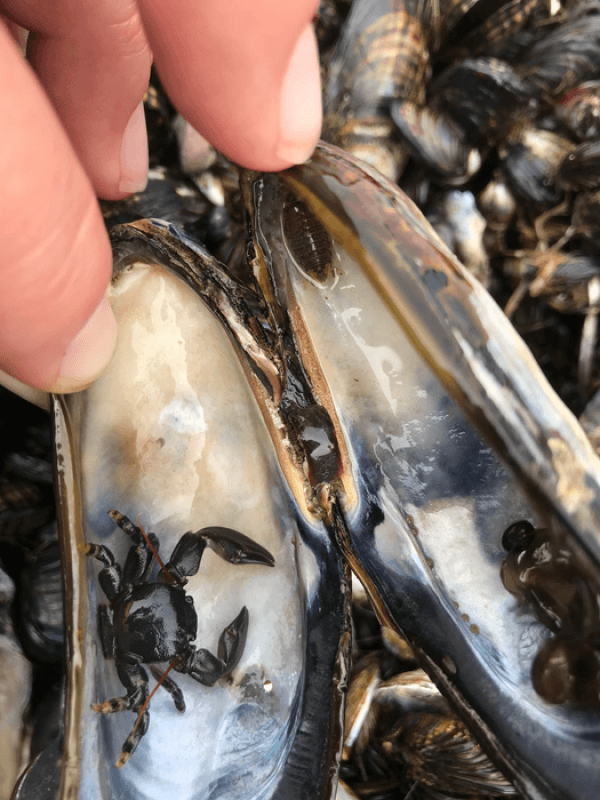Some marine species can help protect others from climate change by shielding them from heat, according to a new study by a Texas A&M University at Galveston professor.
Laura Jurgens, assistant professor of marine biology, and colleagues from the University of Vermont and the University of California at Davis detail the findings in the current issue of Ecology.
The team studied how tiny crabs and isopods – which are marine versions of pill bugs – that live on rocky shores react to warming of their natural rocky shore habitats. They found that the mussel beds these animals live in protect them from temperature swings and keep them from drying out and dying on hot, sunny days.
Read more at Texas A&M University
Image: A tiny Porcelain crab takes refuge in a mussel shell (Credit: Laura Jergens / Texas A&M-Galveston)


